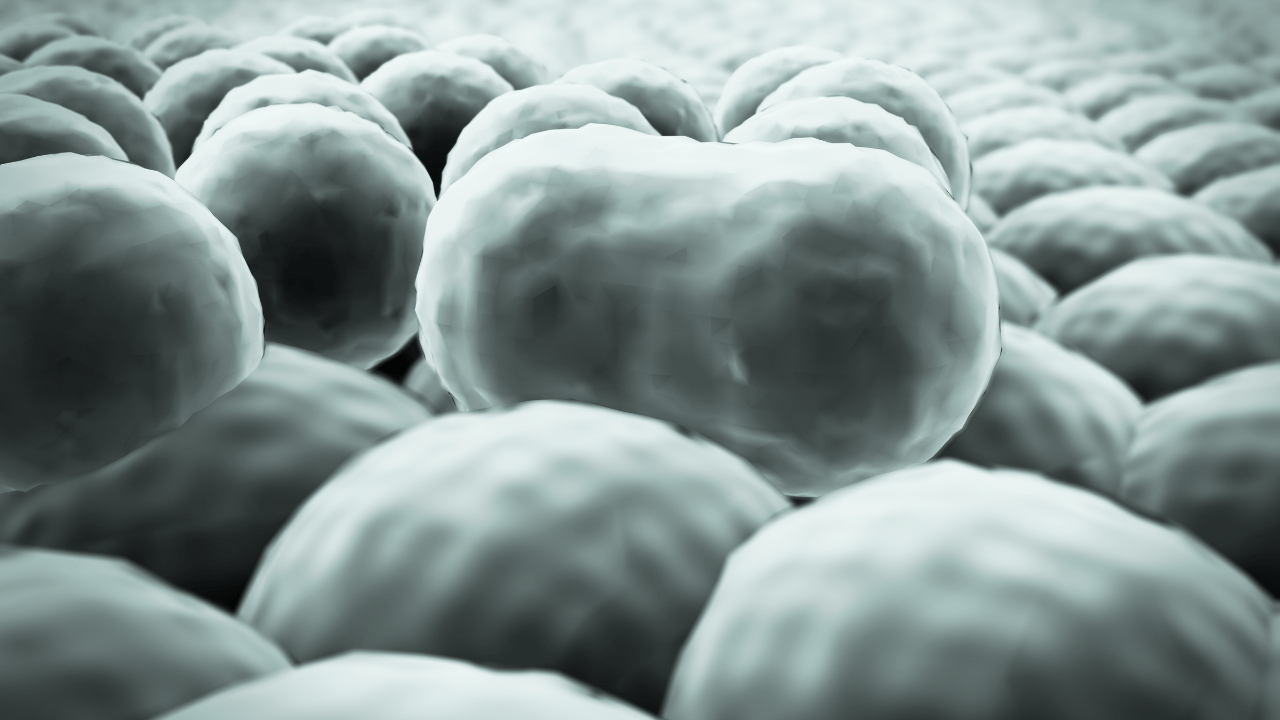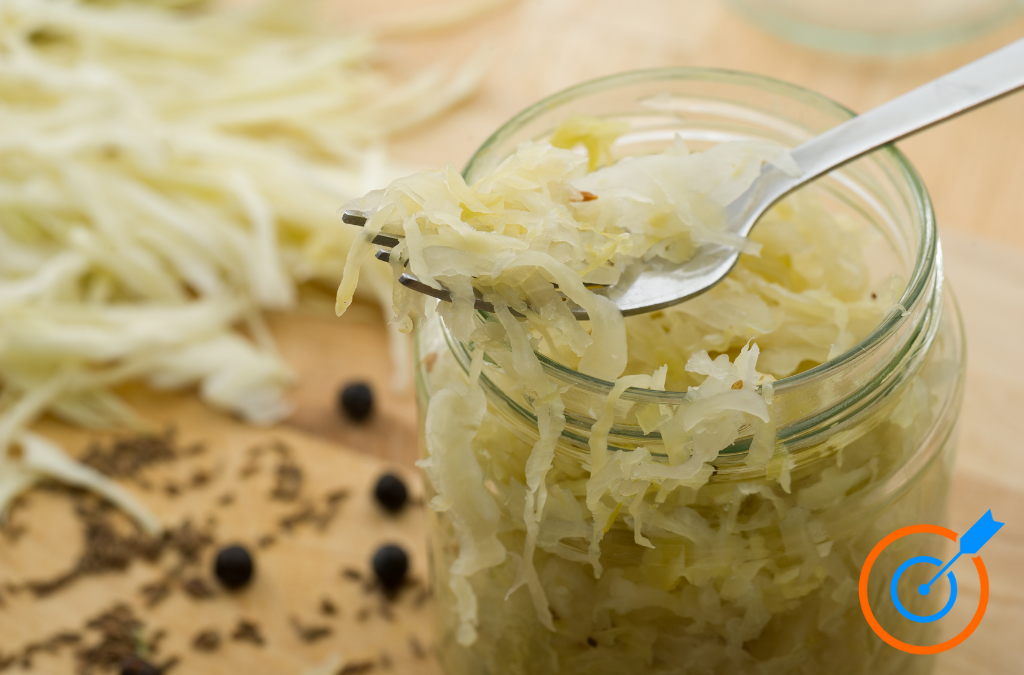How Probiotics Help You Lose Weight & Belly Fat
I'm stoked to show you how to lose weight with probiotics. With just a few simple tweaks to your diet, you'll be able to lose belly fat. Let me break it down!
Probiotics are live microorganisms that have health benefits when eaten. They are found in both supplements and fermented foods. Probiotics may improve digestive health, heart health, and immune function, but what's really exciting is their ability to help you lose weight and belly fat.
How Probiotics Affect Changes in Weight
Probiotics aid with weight loss in several ways:
Reduces fat absorption: Certain probiotics prevent your body from absorbing all dietary fat, increasing the amount of fat excreted. In other words, they make you "harvest" fewer calories from the foods in your diet.
Controls appetite: They encourage the release of GLP-1, a hormone that reduces hunger and boosts fat burning.
Reduces fat storage: Probiotics increase ANGPTL4, a protein that prevents fat accumulation.
Fights inflammation: A balanced gut microbiome can lower inflammation, which is linked to obesity.
Furthermore, there is also a lot of evidence that obesity is linked to inflammation in the brain. Hence, by improving gut health, probiotics may reduce systemic inflammation and protect against obesity and other diseases.

The Best Probiotic Strains for Weight Loss
Studies have found that certain strains of the Lactobacillus family can help you lose weight and belly fat. Some strains, especially those that target visceral fat (fat around the organs), have been shown to reduce weight, BMI, waist size, and hip circumference.
The Best Probiotic Strains for Belly Fat Reduction
Lactobacillus gasseri – Most effective for reducing belly fat.
Bifidobacterium lactis – Supports digestion and metabolism.
Lactobacillus rhamnosus – Helps with weight control.
Lactobacillus plantarum – Reduces fat storage and inflammation.
Probiotics and GLP-1 for Appetite Control and Fat Burning
Let's talk more about GLP-1 and its fat-loss benefits.
GLP-1 (glucagon-like peptide-1) is a hormone that reduces appetite and helps regulate blood sugar, which in turn promotes fat burning and weight loss.
Foods That Naturally Boost GLP-1:
High-fiber foods – Barley, oats, beans, leafy greens
Fermented foods – Yogurt, sauerkraut, kefir
Probiotic strains – Lactobacillus gasseri and Bifidobacterium lactis

Probiotics and ANGPTL4 for Decreased Fat Storage
(You Can Stop Forming Fat Cells)
Now, let's discuss ANGPTL4, a protein that helps regulate fat storage by inhibiting the formation of new fat cells and reducing fat accumulation.
Foods That Support ANGPTL4 Production:
- Fatty fish – Salmon, mackerel (rich in omega-3s)
- Fiber-rich vegetables – Broccoli, spinach, kale
- Fermented foods – Kimchi, miso, tempeh
Probiotic Strains That Increase ANGPTL4:
- Lactobacillus rhamnosus
- Lactobacillus plantarum
These bacteria help reduce fat storage and support a healthier metabolism.
Not only is shrinking fat cells beneficial for weight loss and a reduction in belly fat it can also help to improve body composition, better metabolic health, and potentially reduce the risk of chronic diseases like heart disease and diabetes.

Can Probiotics Prevent Weight Gain?
Losing weight is great, but preventing weight gain in the first place is even better!
Certain probiotic strains may be able to prevent weight gain on a high-calorie diet. Although the research is very new it's well worth the extra effort to include more probiotics in your diet if you're serious about keeping those pounds away. Not all studies have found that probiotics help with weight loss. The effects depend on the probiotic strain, and may also vary between individuals.

Probiotics Offer More Than Just Weight Loss
Even if weight loss isn't your main goal, adding probiotics to your diet offers other amazing benefits. When combined with a healthy, real food-based diet, you can look forward to such benefits as:
Improved digestive health
Enhanced immune function
Reduced inflammation
Improved heart health
Better mental health (reduced anxiety and depression symptoms)
Reduced allergy symptoms

Tips to Nurture Your Gut with Probiotics and Lose Belly Fat
Want to get the most out of probiotics? Follow these tips:
- Take a high-quality daily probiotic supplement to introduce billions of beneficial bacteria into your gut.
- Load up on fermented foods like kombucha, sauerkraut, and kimchi.
- Feed your gut bacteria with prebiotics, indigestible fibers that are your belly bugs' favorite food source. Indulge in honey, oats, bananas, asparagus, and onions, and add in a daily prebiotic powder supplement for maximum support.
- Avoid unnecessary antibiotics, both in medicine and food.
- Use natural cleaning products instead of antibacterial chemicals, which kill good bacteria. Look for natural cleaners like gentle soap, water, baking soda, and apple cider vinegar.
- Limit your exposure to environmental toxins, which can disrupt gut health and hormonal balance.
#1 Natural Ozempic Alternative
Frequently Asked Questions (FAQs)
1. What is the best probiotic for belly fat loss?
- Lactobacillus gasseri is the most researched strain for reducing belly fat.
2. How long does it take for probiotics to work for weight loss?
- It varies, but most studies show results in 4 to 12 weeks with consistent use.
3. Should I take a probiotic supplement or just eat fermented foods?
- Both! A high-quality supplement ensures you get enough probiotics daily, while fermented foods provide natural diversity.
4. Can probiotics help if I have bloating and digestive issues?
- Yes! Probiotics improve digestion and balance gut bacteria, reducing bloating and discomfort.
5. Do probiotics work for everyone?
- Results vary, but most people benefit from improved digestion, metabolism, and gut health.
Conclusion
The good news is that adding probiotics to your daily routine is an easy way to support your gut health, aid weight loss, and keep your belly flat. Give your gut some love, and it will love you back! You can do it!
Need a probiotic recommendation? Click here to check out my favorite probiotic supplements for weight loss!




0 comments